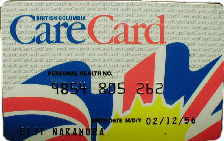 The greatest shame of 12-year-old Deamonte Driver's well-publicized death from a dental abscess is this: In any other industrial nation in the world, it never would have happened.
The greatest shame of 12-year-old Deamonte Driver's well-publicized death from a dental abscess is this: In any other industrial nation in the world, it never would have happened. You've no doubt read the details of Deamonte's demise by now, so I don't have to go into them. But, as so often happens in American medicine, the bureaucratic particulars are at least as important as the biological ones. A TomPaine.com editorial illustrates the yawning chasm ("hole in the safety net" doesn't begin to describe it) that the Driver family fell into:
Alyce Driver is a working mother, but her low-wage jobs did not provide health insurance. Her children were eligible for Medicaid, but dental care under Medicaid, as the Post story documents, is particularly problematic. Fewer than one in three children enrolled in Medicaid receive preventative dental care in Maryland, and only 900 of the state’s 5,500 dentists accept Medicaid because of the low reimbursement rates. But Maryland children are better off than those in Virginia, where only one in four Medicaid children receive preventative dental care.Bear the Kafkaesque stupidity of the Driver family's nightmare in mind. And then consider how it would have happened in Canada.
Compounding the problem was that Driver lost her Medicaid coverage during a period when she had to stay in a homeless shelter. She apparently missed some paperwork that had been sent to her. Deborah Weinstein, executive director of the Coalition on Human Needs, said that people losing their coverage as they slip in or out of homelessness is not uncommon.
Here on the civilized side of the border, Deamonte and his family -- like every other Canadian -- would have had basic health coverage that covered them all from birth onward. While most families pay a small monthly premium for this policy (ours is $108 for a family of four), this fee would have either been covered as a benefit by Alyce's employer, or waived automatically when she applied for public assistance. The policy would remain intact regardless of Alyce's employment status, without any vigilance on her part required. That's what it looks like with health care is considered a fundamental human right.
Alyce could take her boy to see any doctor, or show up at any hospital, and receive free, thorough, and timely care -- the same care, from the same doctors and in the same hospitals, enjoyed by the richest people in the province. This plan would also have covered Deamonte's abscessed tooth, because the basic plan provides dental care for children up through the age of 14. Again -- not just from the rare dentist that takes Medicare, but any dentist of her choosing. And so Deamonte's abscess would have been discovered and treated long before it became a mortal issue.
However, even if Deamonte had been 15 instead of 12, the odds are overwhelmingly good he'd have been covered by private dental insurance. Because insurance companies aren't in the business of covering high-ticket hospitals stays and surgeries, low-cost supplemental policies that cover extras like physical therapy, vision care, drugs, and dental treatment are very cheap -- so cheap, in fact, that even small employers can easily afford to offer them as a standard benefit. So the vast majority working Canadians have dental insurance, regardless of their age.
It's also noteworthy that before Saskatchewan premier ("premier" is Canadianese for "provincial governor") Tommy Douglas created the country's first single-payer health care plan in 1965, the country was treated to a brief but heartbreaking series of stories like this one. The press told the country about stoic prairie farm wives locking themselves in attics to die horrible cancer deaths alone without palliative medications, out of sight of their children; and families losing businesses built up over generations because their breadwinner was crippled. To their credit, Canadians grasped very quickly that allowing people to die for lack of care was beneath the aspirations of a civilized nation -- and got to work creating a health care system that would help every ailing citizen keep health, family, and fortune intact.
Poland manages this. Costa Rica manages this. Even Sri Lanka and Cuba manage this -- and Mexico and Thailand are on the way. But the United States can't be bothered. And so the deaths will continue, as our current farce of a health care system creates 18,000 Deamonte Drivers every single year. Fifty a day, two an hour, from sea to shining sea.
From now on, that's the only response we need to make to those who still insist we don't need universal health care. Eighteen thousand a year. Fifty a day. Two an hour. Every hour, around the clock. That's nearly a week's worth of 9/11s -- or 24 years of GWOT casualties -- killed by our own negligence every single year.
Perhaps, like our Canadian neighbors 40 years ago, we won't wake up until we start hearing about every single one of them, every day, for as long as it takes to shame us into making damn sure there will never be one more.
No comments:
Post a Comment